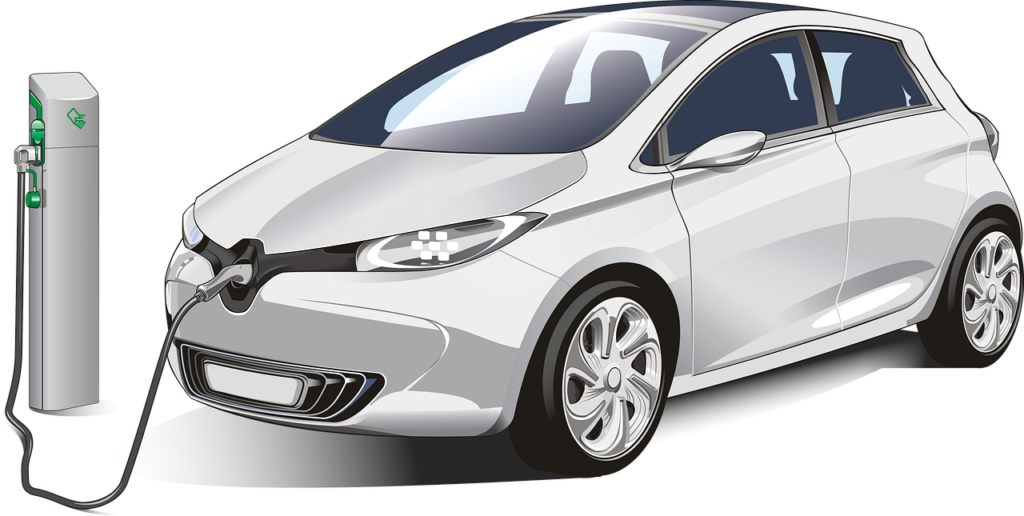Introduction
The global automotive industry is undergoing a profound transformation as it pivots towards sustainability and energy efficiency. Electric vehicles (EVs) are at the forefront of this revolution, and their widespread adoption is heralding a new era of transportation. However, EVs are not just about clean energy and reduced emissions; they also rely on a hidden hero – metals. These essential components are mainly sourced from recycled scrap cars, and Australia, with its abundant resources, is poised to play a pivotal role in reshaping the auto industry and the metal recycling sector.
This article explores the metals required for electric cars, focusing on their primary source – recycled materials from scrapped vehicles. We will delve into the role Australia is set to play in this transition, and how it is poised to affect both the auto industry and the metal recycling sector.
I. The Metals Driving the Electric Revolution
Electric vehicles rely on a unique set of metals for their construction, and these materials are critical to their performance, longevity, and sustainability. Some of the key metals involved in the production of electric cars are:
- Lithium: Lithium-ion batteries power most EVs, making lithium the backbone of electric mobility. These batteries are lighter and have a higher energy density than traditional lead-acid batteries, which is crucial for extending the range of electric vehicles.
- Cobalt: Cobalt is another essential component in lithium-ion batteries, although its usage has raised ethical concerns due to questionable mining practices in some regions. Nonetheless, research into reducing or replacing cobalt in batteries is ongoing.
- Nickel: Nickel is a crucial component in lithium-ion batteries, contributing to their capacity and performance. Battery chemistries with higher nickel content, such as NMC (nickel-manganese-cobalt), are becoming increasingly prevalent.
- Copper: Electric cars require a significant amount of copper for their wiring and electric systems. Copper is an excellent conductor of electricity and is essential for efficient and reliable power distribution in EVs.
- Rare Earth Elements (REEs): REEs, such as neodymium and dysprosium, are used in the production of electric motors. These materials play a pivotal role in the development of powerful, compact, and energy-efficient electric motors.
- Steel and Aluminum: Structural components of electric cars often rely on steel and aluminum, both of which are lighter and more environmentally friendly than traditional steel used in internal combustion engine vehicles.
II. The Role of Recycled Materials in Electric Cars
Sustainability is a core principle of the electric vehicle industry, and one of the ways this is achieved is by utilizing recycled materials, particularly from scrapped cars. The recycling process offers numerous benefits:
- Conservation of Resources: Recycling reduces the need for virgin raw materials, helping to conserve precious resources and minimize environmental degradation associated with mining and extraction.
- Energy Savings: Recycling consumes significantly less energy compared to the extraction and processing of new materials, further reducing the carbon footprint of electric vehicle production.
- Emissions Reduction: Recycling also leads to lower greenhouse gas emissions, as it avoids the energy-intensive processes required for mining, refining, and manufacturing new materials.
- Cost Savings: Using recycled materials can be cost-effective for manufacturers, as they can reduce their expenses on sourcing and processing raw materials.
Recycling in the Electric Vehicle Industry
As electric vehicles become more popular, the automotive industry is actively incorporating recycled materials into their production processes. This includes recycling metals and other materials from end-of-life vehicles (ELVs). ELVs are a rich source of materials like steel, aluminum, and copper that can be recovered and reused in the production of new electric cars.
Metal recycling in the auto industry plays a crucial role in reducing the environmental impact of vehicle manufacturing. When end-of-life vehicles are recycled, they contribute to the circular economy, where materials are continuously reused and recycled, reducing the need for new resources and minimizing waste.
Recycling initiatives are being actively promoted and incentivized in various countries, further driving the adoption of sustainable practices in the auto industry. Many governments and organizations are offering incentives and programs to encourage the recycling of ELVs and the responsible disposal of batteries and other vehicle components.
Australia’s Role in the Electric Vehicle Metal Supply Chain
Australia, known for its vast mineral wealth, is poised to become a significant player in the electric vehicle metal supply chain. The country is home to abundant reserves of some of the essential metals needed for electric cars, including lithium, nickel, and cobalt. These resources are not only valuable for domestic consumption but also for export to meet the growing global demand for EVs.
- Lithium: Australia is one of the world’s largest producers of lithium, with reserves in Western Australia, Queensland, and other regions. The Greenbushes Lithium mine in Western Australia is the world’s largest lithium mine and a critical source for global lithium supply.
- Nickel: Australia has extensive nickel reserves, and the country is increasingly recognized as a significant nickel supplier for the electric vehicle industry. Australian mining companies are actively exploring and developing nickel deposits to meet the growing demand for EV batteries.
- Cobalt: While Australia does not have the same level of cobalt reserves as other countries like the Democratic Republic of Congo, it is still a notable producer of cobalt. The ethical and responsible sourcing of cobalt in Australia aligns with the sustainability goals of the electric vehicle industry.
- Rare Earth Elements: Australia also possesses reserves of rare earth elements, making it a potential supplier for the magnets used in electric vehicle motors.
Australia’s strategic location and robust mining infrastructure position it favorably to become a key player in the global supply chain of metals required for electric cars. This not only provides economic opportunities for the country but also contributes to the sustainability goals of the electric vehicle industry by supporting the use of recycled materials and ethically sourced metals.
Impact on the Auto Industry
The increased use of recycled materials and the availability of essential metals from Australia will have several significant impacts on the automotive industry:
- Supply Chain Resilience: The availability of these critical metals from diverse sources, including recycled materials and Australia, enhances the resilience of the supply chain for electric vehicle manufacturers. This reduces their reliance on a few mining regions, mitigating the risks associated with supply chain disruptions.
- Environmental Responsibility: The integration of recycled materials and ethically sourced metals aligns with the environmental responsibility goals of the auto industry. It allows automakers to demonstrate their commitment to sustainability and reduce their carbon footprint.
- Cost Efficiency: Utilizing recycled materials and sourcing essential metals from Australia can lead to cost savings in the long run. Reduced expenses in raw material procurement, energy-efficient recycling processes, and responsible sourcing practices all contribute to cost efficiency.
- Market Competitiveness: Electric vehicle manufacturers that can secure a stable supply of critical metals from diversified sources gain a competitive edge. This ensures a steady production of EVs and meets the growing demand of environmentally conscious consumers.
Impact on Metal Recyclers
The growing demand for recycled metals in the electric vehicle industry creates significant opportunities for the metal recycling sector:
- Market Growth: The increasing adoption of electric vehicles, which rely on recycled materials, provides a growing market for metal recyclers. This, in turn, supports the expansion of recycling operations and the creation of new job opportunities.
- Technological Advancements: As the demand for specific metals in electric vehicle production grows, metal recycling technologies will continue to advance to efficiently extract and process these materials from scrap vehicles.
- Environmental Benefits: Metal recyclers play a crucial role in reducing the environmental impact of the auto industry by diverting end-of-life vehicles from landfills and conserving resources through responsible recycling practices.
- Collaboration Opportunities: Metal recyclers can establish partnerships with electric vehicle manufacturers to ensure a steady supply of high-quality recycled materials. These collaborations can lead to mutually beneficial agreements and support the circular economy.
Challenges and Considerations
While the shift towards recycled materials and ethically sourced metals in electric vehicle production is promising, it comes with its own set of challenges and considerations:
- Collection and Sorting: Collecting and sorting end-of-life vehicles for recycling can be a complex process. Effective systems and infrastructure must be in place to streamline this process.
- Technological Advancements: Continued innovation in recycling technologies is essential to efficiently recover metals from scrapped vehicles and other sources.
- Ethical Sourcing: Ensuring that metals are sourced responsibly and ethically is vital, as the demand for these materials increases.
- Battery Recycling: As the number of electric vehicles on the road grows, the recycling and disposal of lithium-ion batteries is an emerging concern. Sustainable battery recycling practices must be developed to address this issue.
Conclusion
The electric vehicle industry is undergoing a remarkable transformation as it moves towards sustainable and environmentally friendly transportation solutions. Essential metals, sourced primarily from recycled materials and abundant Australian reserves, play a pivotal role in this revolution. The adoption of recycled materials and the responsible sourcing of critical metals not only align with the industry’s environmental goals but also contribute to supply chain resilience and market competitiveness.
The role of Australia in providing these metals to the global market highlights the country’s potential to influence the automotive and metal recycling sectors positively. As electric vehicles become more prevalent, the need for recycled materials and ethically sourced metals will continue to grow, presenting both challenges and opportunities for the industry. With a commitment to sustainable practices, innovation, and responsible sourcing, the electric vehicle industry can lead the way in transforming transportation for a more environmentally conscious future.


